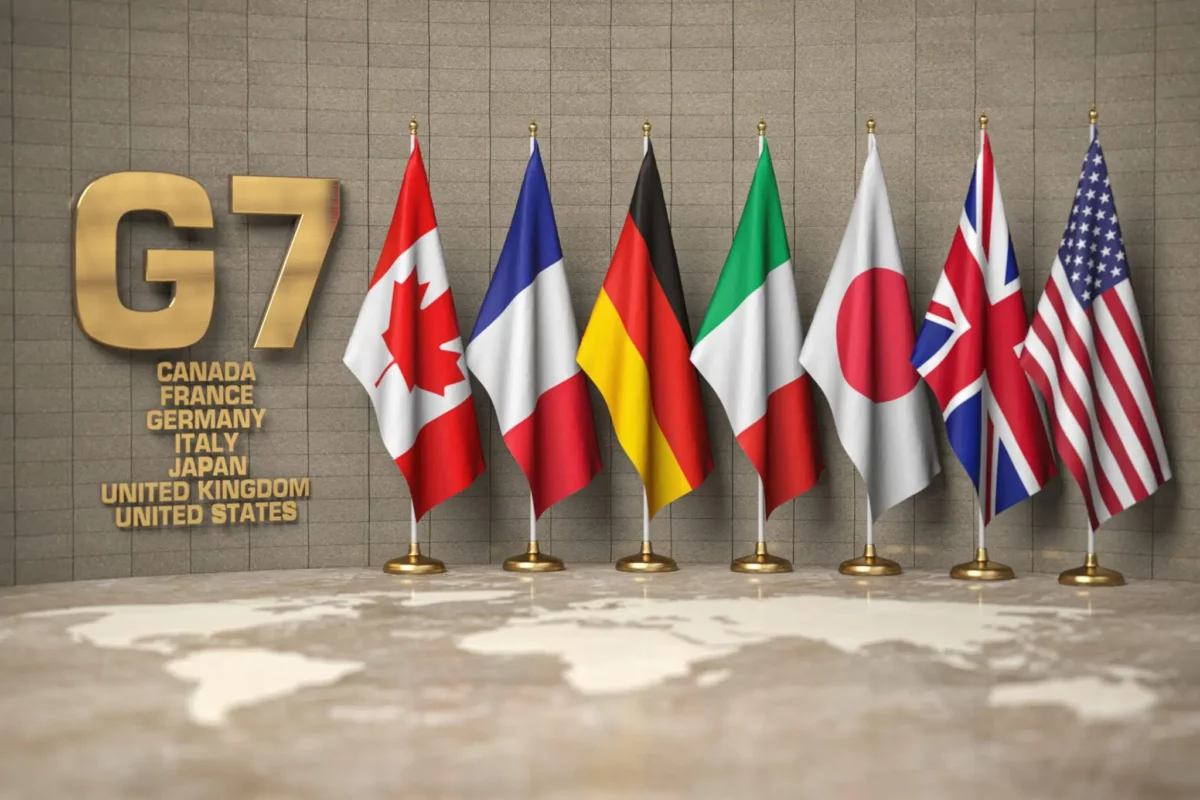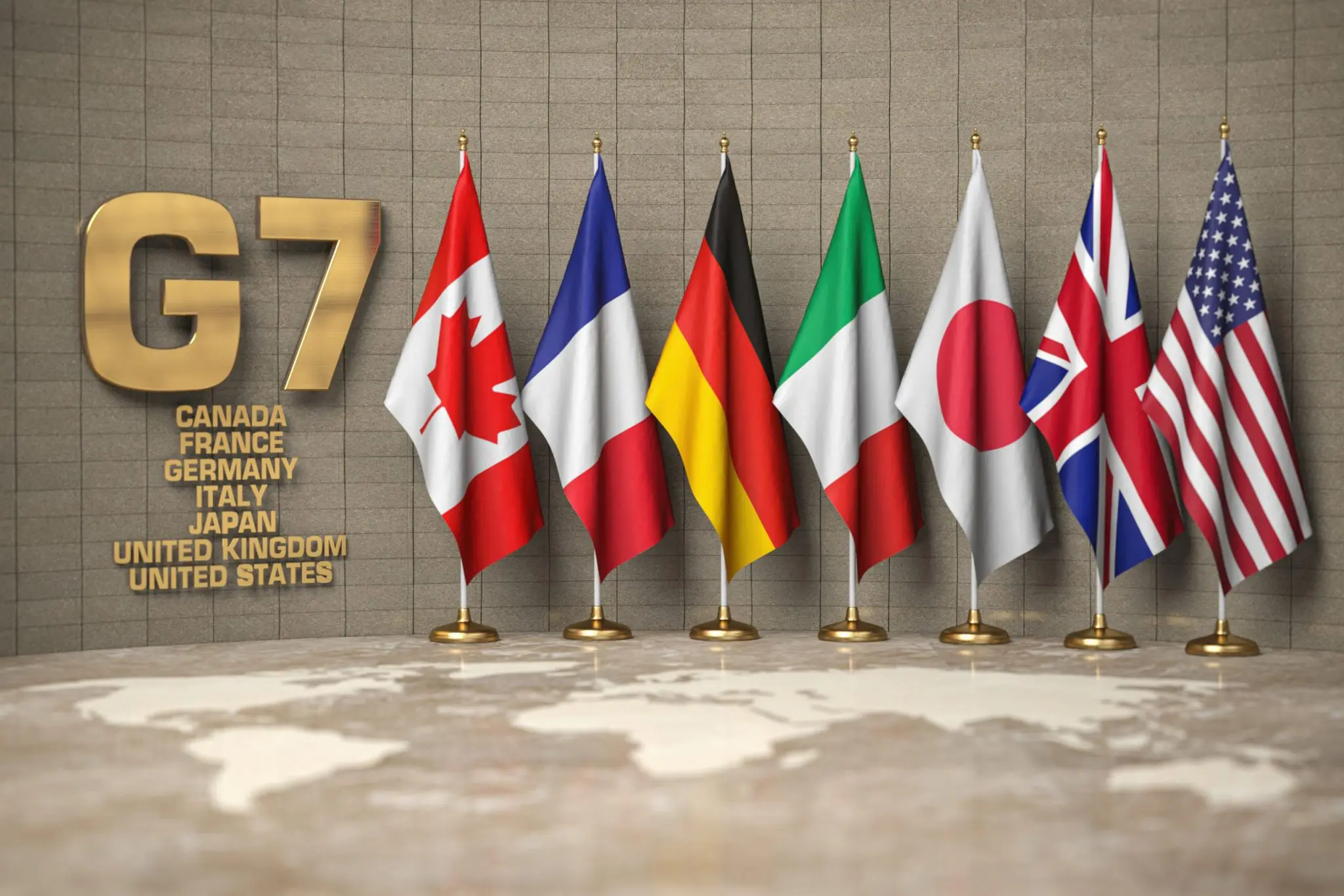GCE-US Applauds the G7 Focus on Education and Urges Increased Funding
On May 19-21, 2023, the G7 Summit was held in Hiroshima, Japan, bringing together leaders of Canada, France, Germany, Italy, Japan, the United Kingdom, and the United States. The Global Campaign for Education-US (GCE-US), a global coalition of over 80 organizations working towards the right to quality, inclusive education for all, applauds the G7 Hiroshima Leaders’ Communiqué, which included notable mentions of the G7’s commitment to the promotion of inclusive education, foundational learning, gender equality and girls’ education, and education’s fundamental role in the advancement of the Sustainable Development Goals.
GCE-US especially applauds the G7’s statement which welcomes support to key international partners working alongside countries to build stronger education systems, including the Global Partnership for Education (GPE), Education Cannot Wait (ECW), UNESCO, and UNICEF. GCE-US urges all donors to increase their multi-year funding to ECW, GPE, UNESCO, and UNICEF, especially in light of the myriad of global crises and conflict which have resulted in major setbacks to decades of education progress in literacy, numeracy, and foundational learning outcomes. These setbacks are especially concerning for marginalized students, including girls and learners with disabilities, who face unique institutional, structural, and cultural challenges in the pursuit of their human right to quality, equitable, inclusive education.
GCE-US also welcomes the G7’s strong commitment to eliminating sexual and conflict-related sexual and gender-based violence, though encourages the G7 to include a stronger focus on ending school-related gender-based violence and reaching children and youth with disabilities, young people in conflict and crisis settings, alongside girls and women, who are at greater risk of violence, exploitation, and abuse.
A week prior to the G7 Summit, May 12-15, the G7 Education Ministers met in Toyama and Kanazawa under the theme “Education after the COVID‐19 pandemic.” GCE-US welcomes the Toyama-Kanazawa Declaration adopted during the G7 Education Ministersʼ Meeting, which:
- upholds the universal value of education as a foundation of democracy, freedom, the rule of law and peace.
- advocates for access to inclusive and equitable quality education for all, including children and students in Ukraine and in crisis situations around the world, particularly girls.
- aims to help ensure access to inclusive and equitable quality education, which contributes to the well-being of all children, starting in early childhood education.
- recognizes the particular importance of providing collaborative learning environments for children with and without disabilities to spend as much time as possible together, as well as providing opportunities for learning that meet the needs of individual children.
- underlines the need to work towards building more resilient educational systems to meet the needs of the post-pandemic world and recover learning losses, to help provide all learners with access to inclusive and equitable quality education, and opportunities to pursue their well-being in the social and economic context of every country, while working towards achieving well-being in educational settings.
To ensure the right to quality, inclusive education for all, GCE-US encourages the United States, along with other G7 countries, to double down on their donor commitments to international organizations including ECW, GPE, UNICEF, and UNESCO; fully fund quality, inclusive education programs – especially for girls, children and youth with disabilities, and young people in conflict and crisis settings – starting with early childhood; strengthen public education systems; and end school-related gender-based violence.
The G7 Hiroshima Leaders’ Communiqué Sections on Education and Related Topics
Emphasis in bold added below
- We commit to making progress for ensuring inclusive and equitable quality education, including vocational education, and promote lifelong learning opportunities for all to build resilient, just and prospering societies. Recent crises have led to decreased access to education and increased learning loss amongst children and youth, especially girls, and those in the most marginalized and vulnerable situations.
As education is a catalyst to achieving all of the SDGs, we reaffirm the importance of upholding education and building more resilient education systems, especially following the COVID-19 pandemic. We reiterate our firm determination to uphold the G7’s previous commitments to protecting educational opportunities for all learners, and to promoting gender equality as well as the empowerment of all women and girls in all their diversity, in and through education including by prioritizing global ODA in this regard.
We welcome the UNSG’s Transforming Education Summit (TES) in September 2022, and call for continued support to the Global Partnership for Education (GPE), Education Cannot Wait (ECW) and UN agencies including the UNESCO and UNICEF as key partners in helping countries to build stronger education systems for the most marginalized children.
We also reiterate the importance of foundational learning and the need for the G7 to increase investment in people in a more equitable and efficient way to provide quality learning opportunities that prepare all learners, especially children with the knowledge and skills they need to thrive and improve their own well-being, noting that education is a human right.
We continue to break down gender-related barriers and underlying discriminatory social norms from pre-primary through higher education for more resilient, inclusive and gender-transformative education. We continue to encourage international exchanges between youth and international talent mobility and circulation among academics, students, and researchers, as well as cooperation between higher education and research institutions. We acknowledge the importance of investment in support of human resources that can contribute to resolving social issues while simultaneously achieving economic growth through education.
We will strive for an educational environment and lifelong learning opportunities where every child can fulfil their own potential, including through the improvement of instruction. This could include promoting small class size, an improved Information and Communication Technology (ICT) environment and the effective use of digital technology to support teaching and learning, while not exacerbating the digital equality gaps.
- Achieving gender equality and the empowerment of all women and girls is fundamental for a resilient, fair, and prosperous society. We endeavor to work with all segments of society to ensure full, equal and meaningful participation of women and girls in all their diversity as well as LGBTQIA+ persons in politics, economics, education and all other spheres of society, and to consistently mainstream gender equality in all policy areas. In this respect, we commit to redoubling our efforts to overcome longstanding structural barriers and to addressing harmful gender norms, stereotypes, roles, and practices through such means as education and achieve a society where diversity, human rights and dignity are respected, promoted and protected and all people can enjoy vibrant lives free from violence and discrimination independent of gender identity or expression or sexual orientation. We welcome the work of the Gender Equality Advisory Council (GEAC) and look forward to strengthening it further. We look forward to the first revision of the G7 Dashboard on Gender Gaps and the publication of the first implementation report this year, which aims to monitor past G7 commitments to make progress on gender equality.
- We commit to strengthening our efforts to eliminate conflict-related sexual and gender-based violence, and the importance of providing comprehensive support and meaningful participation for victims and survivors, using a survivor-centered approach. We further commit to eliminating all forms of sexual and gender-based harassment and abuse both offline and online as well as aid-related sexual exploitation and abuse.
We are committed to ensuring the right to education for all, and emphasize the importance of promoting equitable access to safe, gender-transformative quality education as well as to taking measures to close the gender gap in science, technology, engineering, and mathematics (STEM) sectors and education, and close the gender digital gap. We see this as key to promote women’s entrepreneurship, which is an essential building block to address the climate, nature and development challenges. We also commit to promoting reskilling and upskilling, fostering decent work conditions, strengthening financial inclusion of women in all their diversity, and eliminating the gender pay gap. We further reiterate our commitments to promoting women's full empowerment as well as their full and equal participation in decision-making processes at all levels, including in leadership positions. We recognize that quality care plays an essential role in the functioning of our societies and economies, but is a key cause of gender inequalities due to its gender unequal distribution.



